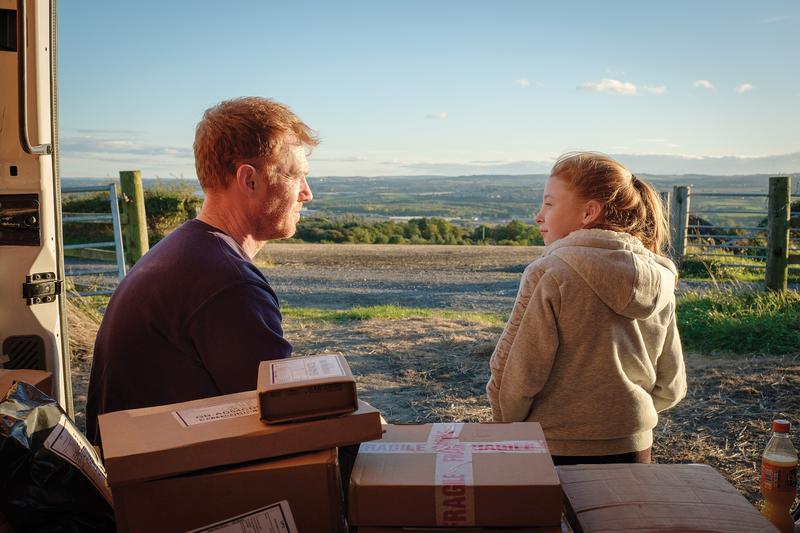 Sorry We Missed You, directed by Ken Loach, written by Paul Laverty. Starring Kris Hitchen and Debbie Honeywood. UK, 101 minutes, IIB. Opens Mar 19. (PHOTO PROVIDED TO CHINA DAILY)
Sorry We Missed You, directed by Ken Loach, written by Paul Laverty. Starring Kris Hitchen and Debbie Honeywood. UK, 101 minutes, IIB. Opens Mar 19. (PHOTO PROVIDED TO CHINA DAILY)
For the entirety of his career, British director Ken Loach has never wavered from displaying his critical, distinctly left-leaning, pro-working class stance, no matter the genre. He did it in political thrillers like Hidden Agenda, in the Palme d’Or winning Irish War of Independence epic The Wind that Shakes the Barley, and in his signature social realist dramas Bread and Roses (about disenfranchised workers looking to unionize) and Ladybird Ladybird (about a woman fighting with child services and her own penchant for abusive men). Loach is one of the few working filmmakers willing to make a personal statement and call out injustices. You don’t have to agree with him, but the courage of his convictions deserves applause.
In 2016 Loach won his second Palme d’Or for I, Daniel Blake, an angry, urgent film about a man caught up in the machinations of British social services. What made that film so notable was the vivid illustration of the ludicrous cycle of state-sponsored poverty it’s far too easy to fall into. Reteaming with Blake writer and long-time collaborator Paul Laverty, in Sorry We Missed You Loach takes his scalpel to the gig economy we all put down to economic development and have become so comfortable with. Loach, however, demands we all take a look at the human cost of next-day delivery and ride sharing.
The unvarnished film takes its name from the irritating (and condescending) cards left behind by delivery workers when packages are undeliverable. It centers around working class Newcastle couple Ricky (Kris Hitchen), his wife Abbie (Debbie Honeywood), and their two kids, surly teen Seb (Rhys Stone) and brainy, wise beyond her years Liza Jane (Katie Proctor). After losing out on the modest aspirations of an affordable mortgage in 2008, former construction worker Ricky dives into the new digital world of contract freelancing. Against her better judgment, Abbie agrees to sell the car she relies on for her home care work so that Ricky can buy a van and avoid egregious franchise fees.
He starts working as a delivery driver — a license to print money for those willing to work hard, he’s told — but soon finds himself trapped between invisible “fines” and a demanding manager, Maloney (Ross Brewster). The stress of doing a job that comes without traditional hours, benefits and protections takes a toll on the family, which comes dangerously close to collapse.
Many will find Sorry We Missed You’s string of tragedies as Loach simply piling on in order to manufacture drama, but as with all his films, Sorry was impeccably researched, and the rising tide of fury over working conditions at the likes of Amazon and Uber is ballooning. Sneaky corporate double-speak — Ricky’s not hired, he’s “on-boarded”, he’s not reprimanded but “sanctioned” — has become so normal we barely notice it.
The film is undeniably humane, and turns a blazing spotlight on the cost of what we call progress and convenience. It’s a difficult film to watch, made more difficult by naturalistic performances by the emerging or non-professional cast that makes each character dignified and resonant. It’s not fun to watch a decent man lose his sense of joy, or a family turn from affectionate to toxic, but such a film serves a vital purpose, particularly when we’re all so accepting of life on demand, no matter who suffers for it.


